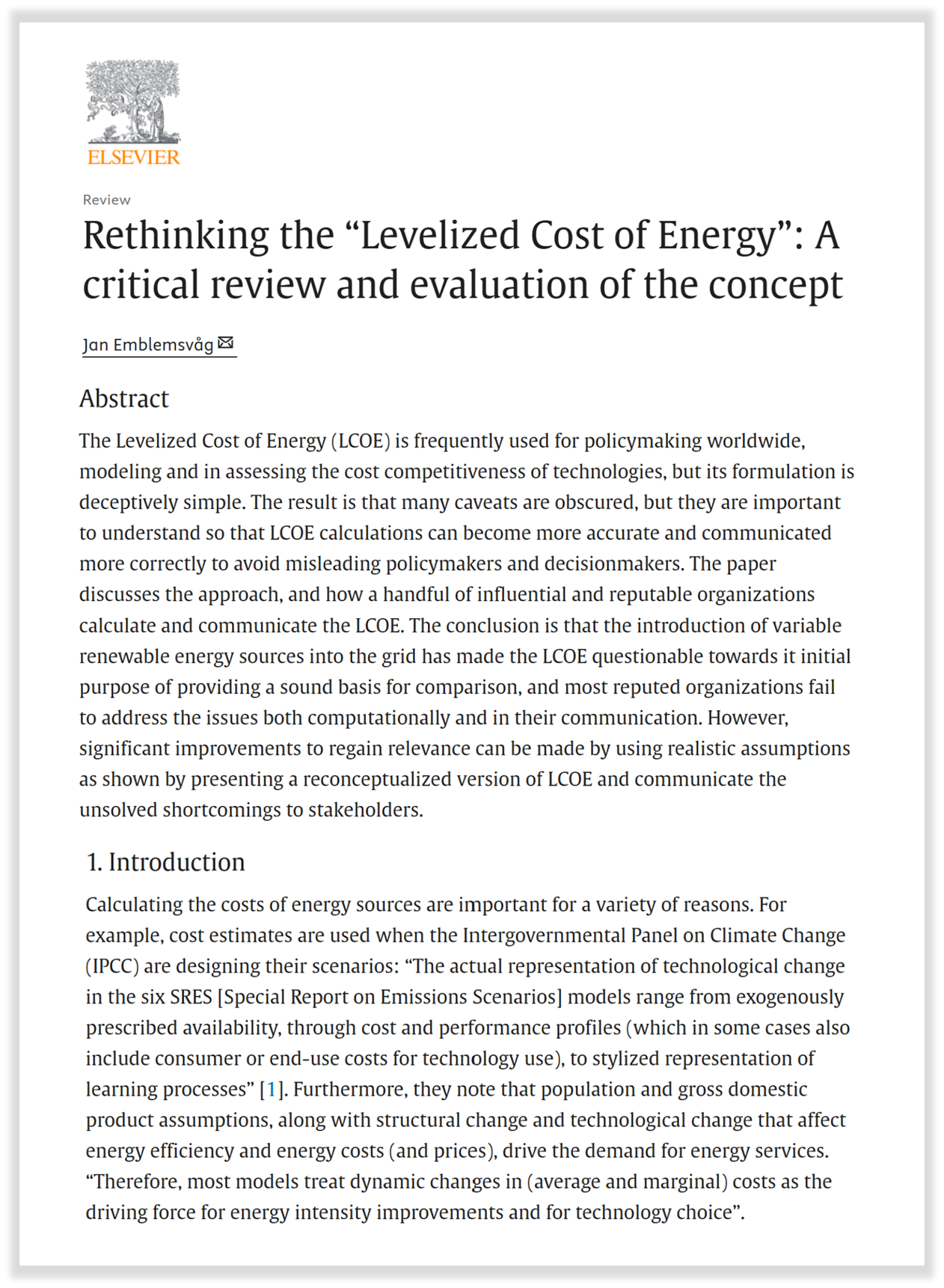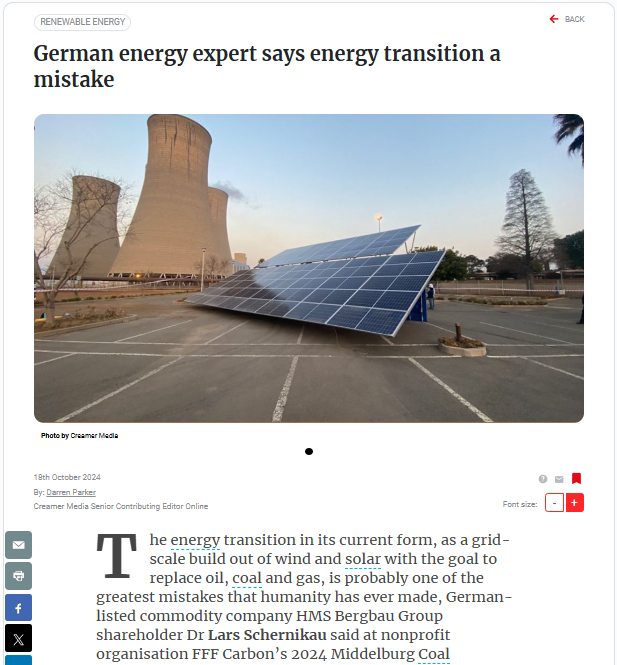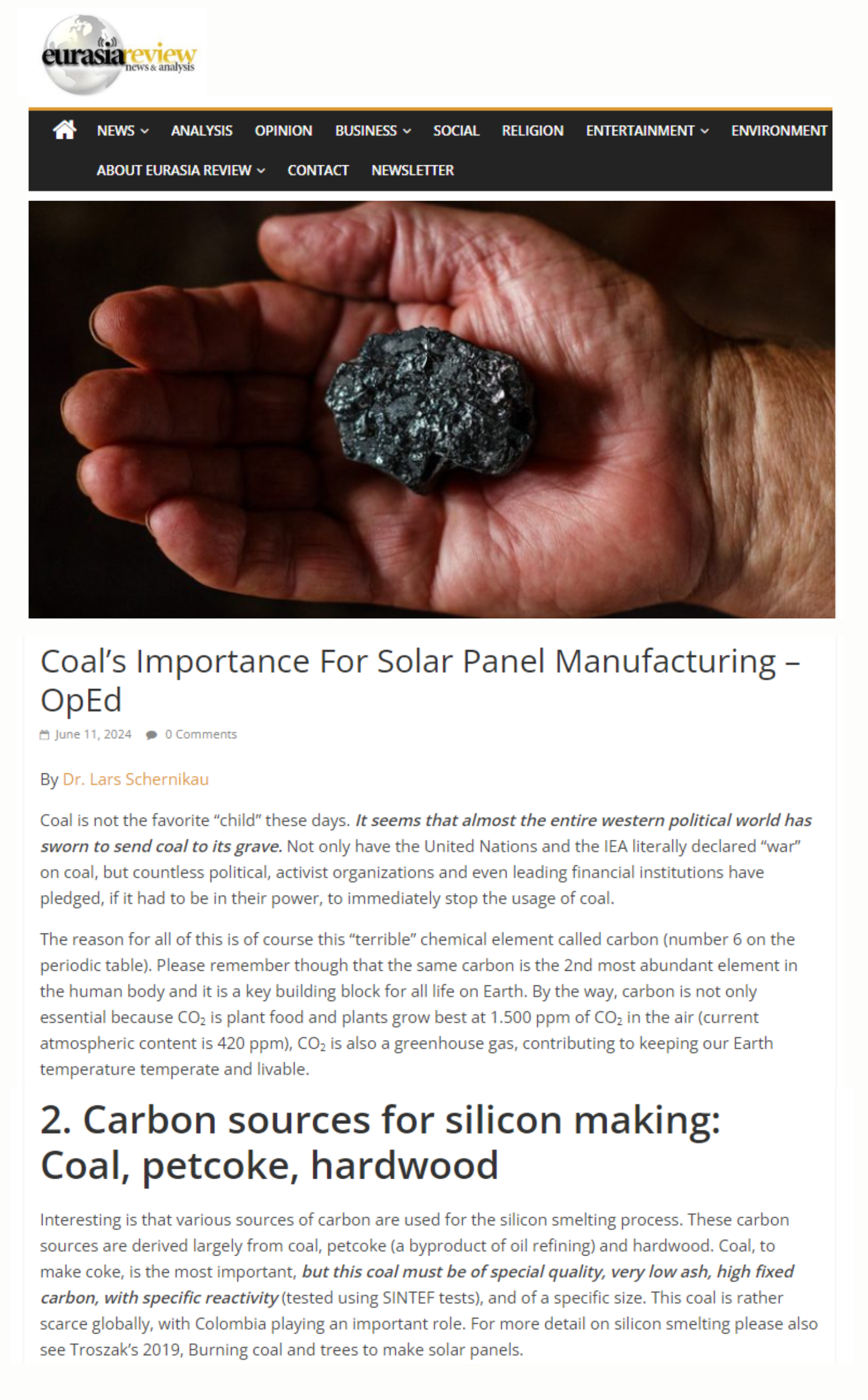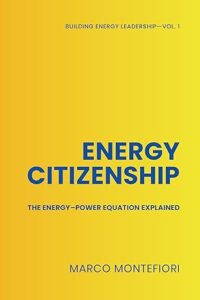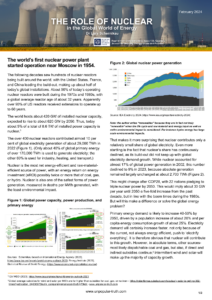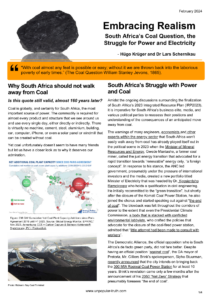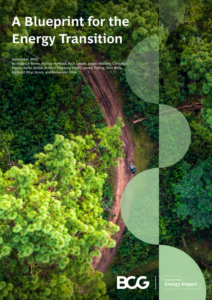NEWS
Table of Contents
A COBT discussion focused on Germany’s significant upcoming election
We covered a lot of territory in our conversation starting with asking Lars and Daniel for background on whether the upcoming election is likely to bring meaningful economic or policy reforms and probing its broader implications for Germany’s economic trajectory.
We explore Germany’s debt-to-GDP ratio as a strategic advantage, though constrained by debt brake laws, potential reforms to reallocate funds from subsidies and social programs toward more productive investments, hidden liabilities that significantly increase Germany’s actual debt burden, European debt dynamics, the Euro, and speculation on whether the U.S. will prioritize strengthening Germany’s economic resilience or focus on attracting German industries to America for lower energy costs.
New Research Paper on LCOE
One of the many important subjects I like to discuss is the cost of electricity and how the LCOE is mistakenly being used by many institutions and governments to compare the cost of wind and solar to that of coal, gas, and nuclear. We covered this in our post and published article “The Energy Trilemma” and also, our own peer-reviewed paper “Full Cost of Electricity ‘FCOE’ and Energy Returns ‘eROI’” available in English and German at Elsevier’s SSRN network.
A new peer-reviewed paper by Jan Emblemsvag from Norway titled “Rethinking the “Levelized Cost of Energy”: A critical review and evaluation of the concept” was newly published in Elsevier’s Energy Research and Social Science.
Jan did not only reference our paper but also made some interesting remarks that are a truly all encompassing summary of the issue of cost of electricity and the false usageof LCOE.
- “Indeed, not a single reputed organization evaluated in this paper offers LCOE estimates that are true to the total life cycle costs of an energy source.”
“This does not mean that every wind turbine and every solar panel is bad,” Schernikau added, outlining several key issues with grid-scale wind and solar energy, starting with the problem of energy density.
Schernikau argued that the transition to wind and solar on a country-wide scale was not a viable solution but a costly mistake that should be avoided.
In this article titled – German energy expert says energy transition a mistake, Dr Lars Schernikau says “Let’s wake up and deal with it and not run away from reality,”
“As unpopular as it may be, the world requires coal, even for the so called “energy transition”. – Dr. Lars Schernikau
So why are coal and solar so closely interlinked? Why is it that solar panel manufacturing is impossible without coal?
In this article titled – Coal’s Importance For Solar Panel Manufacturing Dr. Lars Schernikau highlights the crutial link between solar panel manufacturing and coal and why
Power, politics, 8 billion people, and expectations for $100 trillion in investments until 2050. This is, at its core, what the energy transition is about. But for it to benefit humanity and the planet in both the short and long term, people need to be empowered by being equipped with a basic understanding of what energy is and how it affects their behavior.
This book cuts through the noise and the sensationalism. It explains in simple terms what energy is and how it relates to power and influence. It challenges current biases about what energy is by examining scientific discovery, economic history, and human psychology.
Marco’s “Energy Citizenship” is a welcome and unalike addition to the range of books on energy in existence. Like Marco, I breath, love, and live Energy… its concepts and workings… like Marco, I strive to better understand energy.
Energy Citizenship has helped me to broaden my understanding and so it will yours, that I am sure of. Its writing is unusual, but captivating and fun, its content important covering diverse areas of the field of energy.
In the 1st part, Marco explains how closely linked energy is to modern history of mankind, he touches on historic and modern sensationalizing of energy, “out of the box” thinking on the “energy transition” and “green tech… and so much more. I may not agree with every statement or conclusion, but the debate and learning that Marco fosters in this book, and in fact every day of his life, is what is so important and brings humanity forward. I thank him for that.
The 2nd part (for me starts in chapter 10) I found most interesting, where he not only introduces novel concepts such as the Chief Energy Officer (that I from now on shall refer to as CE2O ) or the “Energy ID”. He goes on to define and explain the basic concepts of energy in a readable manner.
The idea of Energy Citizenship is an important one… the call for energy education critical for a “sustainable” future, being fully aware that “sustainable” is just a buzz word but also so much more.
This book is truly for everyone… and “Everyone of us is 99% Energy”.
– Dr Lars Schenikau
“The world’s first nuclear power plant started operation near Moscow in 1954.”
“…from a macroeconomic point of view, there is no realistic scenario in which nuclear will suffice to meet the growing energy demand of the next 30 years, because of (1) timing, (2) costs and regulation, and (3) the sheer volume of energy demand growth.”
This article, published in The Oxford Institute For Energy Studies, Isssue 139, Quarterly Jounral for Debating Energy Issues and Policies, on nuclear energy, is a first for Dr. Lars Schernikau who writes –
“I support and we need as much nuclear power as we can get, but we won’t realistically surpass 2002 generation share by the year 2050, even after tripling output.”
“South Africa should rather embrace good old King Coal as part of its energy future by supporting investments to improve environmental and economic efficiencies.”
South Africa, being the country most globally dependent on coal, derives up to 80% of its primary energy and electricity from the commodity, a trend largely unchanged over the past two decades.
In this article titled – Hügo Krüger & Dr. Lars Schernikau write about how supporting coal is often viewed as a heretical form of “denial” of climatic changes and an “ignorance” of the “toxic” poisons spewing from coal plants. However, the reality is that (a) modern coal is not what it used to be (b) surface mined coal releases fewer green-house gas emissions than LNG imports, over the entire supply chain and (c) economic trade-offs and not ideological purism should be what drives the decision making in developing nations such as South Africa.
“As a prime concern, access to reliable energy is needed, before considering the affordability thereof. Once the balance between reliable and affordable energy is achieved, only then environmental sustainability can be tackled in a meaningful way.” – Dr. Lars Schernikau
Why is it wrong to use LCOE when evaluating the cost of power to a country?
In this article titled – The ‘Energy Trilemma’ And The Cost Of Electricity – Why “Renewables” cannot save but cost Billions, Dr. Lars Schernikau explains why the LCOE, levelized cost of electricity, is misleading when evaluating the cost of power to a country.
He goes on urging investments in power plants, fuels, and refineries to avoid a prolonged global energy crisis with all its consequences to lives, health, and wealth, especially for the impoverished.
“I dare to say that I care about the environment and the future of our children and planet as much as BCG and the authors of the report do.” – Lars Schernikau
Here you can read Lars´ responce to a recent report “A Blueprint for the Energy Transition” from September 2023 by BCG. He wrote this response with good intentions to spark further research and an important debate.
Lars seeks further feedback on his response from any professionals or academics.
Issues covered in Lars’ response (table of content):
- Addition or “Transition”?
- Cost of power… wind and solar increases (not decreases) costs
- Coal vs. Gas
- Insufficient global investments in supplying energy?
- Supply side variability vs demand side response
- The trilemma of energy policy
- Warming of 1.5°C vs. 2.7°
- Extreme weather and catastrophes
- Poor vs “rich”, impacts of climate change
In early March 2023, Germany’s Ministry for Economy and Climate issued a new “Photovoltaic Strategy” (download here) for review by the Germany citizens before 23rd March.
Lars Schernikau prepared a detailed reply pointing out various fundamental shortcomings of the strategy focusing on four points,
a) energy costs,
b) energy demand, natural capacity factors, and storage
c) energy effiency, and
d) system/network integration
Lars’ Review is publicly available and can be downloaded below. It has been sent to various media outlets and is published on social media
“Your use of the variable cost measure LCOE is scientifically incorrect when comparing dispatchable with base load power. When you adjust your analysis for full costs (which you must for a logical economic argument), you will get different results. ” – Lars Schernikau
Lars Schernikau is the initiator and main author of this letter . The letters serves as a reply to the IMF´s Working Paper – The Great Carbon Arbitrage and is endorsed by a number of science and energy economic experts in the energy, commodity, and atmospheric physics fields who have chosen to co-sign this letter.
Summary of the content:
- Social “cost of carbon” is not consistent with life-cycle analysis and a macro view to the environment
- Your choice to focus on coal is misleading and incorrect
- Your statement that variable “renewables” will bring economic benefit over coal in misleading and incorrect
